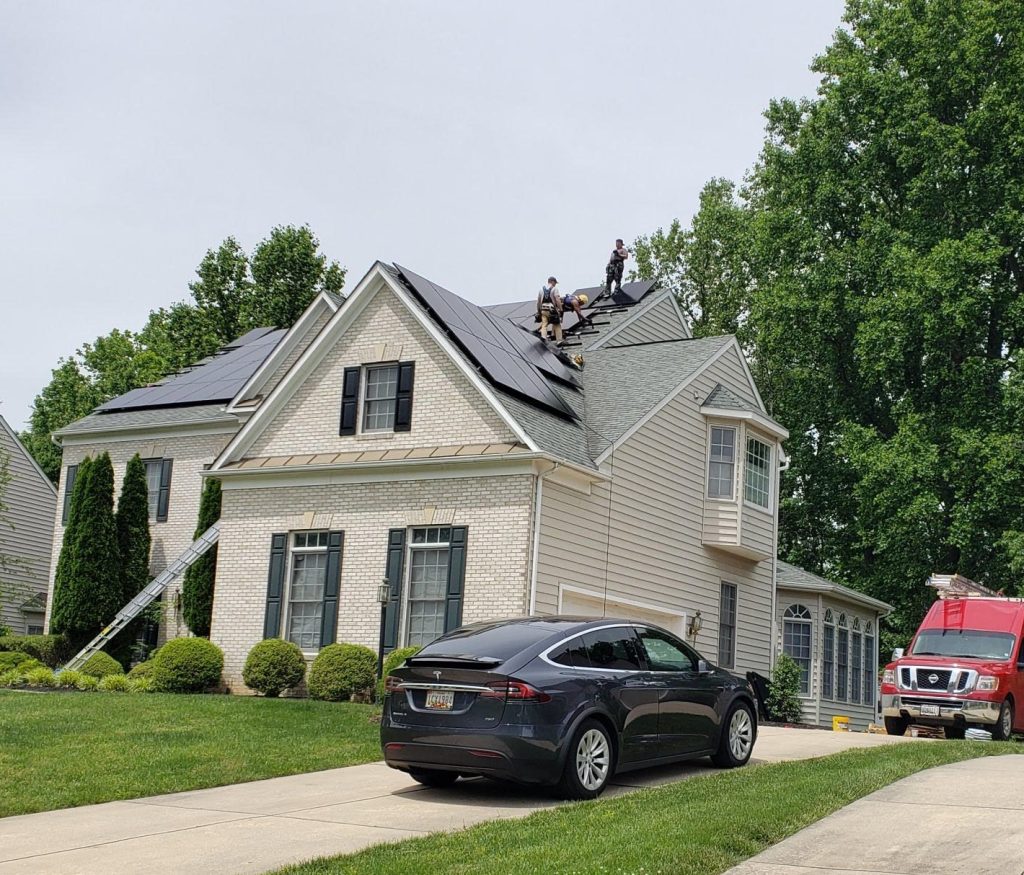When homeowners consider installing a solar energy system, one of the top questions is whether the system will power appliances and how many panels are required to run them. The good news is that you can use your solar panels to generate the energy your appliances need to run.
You’ll need to purchase an inverter to convert the direct current from the panels to alternate the current with usable voltage for the appliances and have a battery to keep things running when the sun is out. However, calculating the number of panels you need to power your household is somewhat complex.
Here are some of the considerations to be aware of.
Installing Solar Panels To Power HVAC Appliances
HVAC appliances like air conditioners and heat pumps require the most calculation because they don’t draw a steady stream of power and aren’t used for a set number of hours each day. With AC, units are rated in tons instead of watts — with most air conditioning units rated from two to five tons. One ton can be represented as 3.5 kW. If you have four hours of peak sun and heat per day, you need 1,200W of power per ton of cooling capacity.
If you run the AC continuously for four hours, that consumes 24 kWh of electricity. With 300-watt solar panels, you’ll produce about 1.2 kWh per day, which means a five-ton AC system needs 20 panels with a 300-watt capacity to run.
You can use the same logic to calculate the number of solar panels needed to power your heat pump or other HVAC appliances. You need to determine how long you’ll use the heat pump each day and how many kWh that will take, and cross-reference it with the production wattage of the panels you choose.
The more efficient your AC or heat pump, the fewer panels you need. However, because HVAC appliances use the most energy, you should consider choosing the highest efficiency panels if you want power left over for other use.
Using Solar To Power Kitchen Appliances
You can easily use solar panels to power all your kitchen appliances. The following wattage estimates will give you an idea of how many panels you would need for each appliance.
- Refrigerator: 4kWh per day
- Dishwasher: 8kWh per day with a one-hour wash cycle
- Conventional oven and stove: 8kWh per day, assuming one hour of daily use
- Microwave oven: 3kWh per day, assuming 15 minutes of use each day
Using these averages and 300-watt panels, you could power your major kitchen appliances with six solar panels.
Powering Entertainment Systems With Solar
Many homeowners underestimate how much entertainment systems use when in standby mode. Devices that consume power when plugged in and powered down contribute to significant “vampire energy” costs that solar panels are perfect to offset. Here are yearly kWh estimates for common entertainment devices.
- Cable or satellite box: 130 kWh
- DVD or BluRay player: 60 kWh
- Computer: 16 kWh
- 50″ TV: 145 kWh
These costs can add up, so using solar panels to power your entertainment devices is an excellent way to cut down on hidden costs.
Expert System Design from Revolution Solar
You can use solar panels to power large and small appliances, as long as your system is designed with your unique needs in mind. The experts at Revolution Solar will carefully evaluate your home’s energy use and available roof space to recommend a system that supplies all the power you want to generate, whether it’s just enough to cover your AC system or power your whole home.
Call Revolution Solar today at (202) 827-6527 or contact us online to schedule your solar evaluation today.


Thanks for sharing awesome article post about solar and home appliance topic and give all informative guidelines that help us a lot.